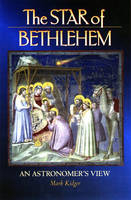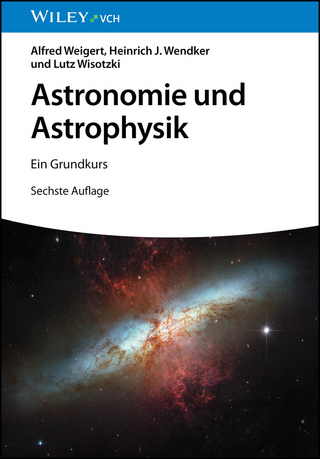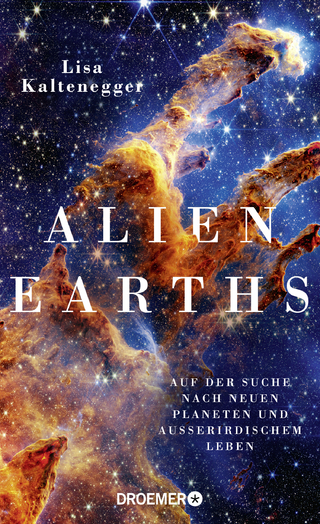
The Star of Bethlehem
Seiten
1999
Princeton University Press (Verlag)
978-0-691-05823-8 (ISBN)
Princeton University Press (Verlag)
978-0-691-05823-8 (ISBN)
- Titel ist leider vergriffen;
keine Neuauflage - Artikel merken
Several years ago, according to the Bible, a star rose low in the east and stopped high above Bethlehem. Was it a miracle? Drawing on Babylonian sky charts, medieval paintings, data from space probes, and calculations about the speed of a camel, this work offers an account of what it may have been that illuminated the night skies 2 millennia ago.
Two thousand years ago, according to the Bible, a star rose low in the east and stopped high above Bethlehem. Was it a miracle, a sign from God to herald the birth of Christ? Was there a star at all, or was it simply added to the Bible to fulfill the Old Testament prophecy concerning the birth of the Messiah? Or was the Star of Bethlehem an actual astronomical event? For hundreds of years, astronomers as prominent as Johannes Kepler have sought an answer to this last baffling question. In "The Star of Bethlehem", Mark Kidger brings all the tools of modern science, years of historical research, and an infectious spirit of inquiry to bear on the mystery. He sifts through an astonishing variety of ideas, evidence, and information - including Babylonian sky charts, medieval paintings, data from space probes, and even calculations about the speed of a camel - to present a graceful, original, and scientifically compelling account of what it may have been that illuminated the night skies two millennia ago.
Kidger begins with the stories of early Christians, comparing Matthew's tale of the Star and the three Magi who followed it to Bethlehem with lesser-known accounts excluded from the Bible. Crucially, Kidger follows the latest biblical scholarship in placing Christ's birth between 7 and 5 B.C., which leads him to reject various phenomena that other scientists have proposed as the Star. In clear, colorful prose, he then leads us through the arguments for and against the remaining astronomical candidates. Could the Star have been Venus? What about a meteor or a rare type of meteor shower? Could it have been Halley's Comet, as featured in Giotto's famous painting of the Nativity? Or, as Kidger suspects, was the Star a combination of events - a nova recorded in ancient Chinese and Korean manuscripts preceded by a series of other events, including an unusual triple conjunction of planets?
Two thousand years ago, according to the Bible, a star rose low in the east and stopped high above Bethlehem. Was it a miracle, a sign from God to herald the birth of Christ? Was there a star at all, or was it simply added to the Bible to fulfill the Old Testament prophecy concerning the birth of the Messiah? Or was the Star of Bethlehem an actual astronomical event? For hundreds of years, astronomers as prominent as Johannes Kepler have sought an answer to this last baffling question. In "The Star of Bethlehem", Mark Kidger brings all the tools of modern science, years of historical research, and an infectious spirit of inquiry to bear on the mystery. He sifts through an astonishing variety of ideas, evidence, and information - including Babylonian sky charts, medieval paintings, data from space probes, and even calculations about the speed of a camel - to present a graceful, original, and scientifically compelling account of what it may have been that illuminated the night skies two millennia ago.
Kidger begins with the stories of early Christians, comparing Matthew's tale of the Star and the three Magi who followed it to Bethlehem with lesser-known accounts excluded from the Bible. Crucially, Kidger follows the latest biblical scholarship in placing Christ's birth between 7 and 5 B.C., which leads him to reject various phenomena that other scientists have proposed as the Star. In clear, colorful prose, he then leads us through the arguments for and against the remaining astronomical candidates. Could the Star have been Venus? What about a meteor or a rare type of meteor shower? Could it have been Halley's Comet, as featured in Giotto's famous painting of the Nativity? Or, as Kidger suspects, was the Star a combination of events - a nova recorded in ancient Chinese and Korean manuscripts preceded by a series of other events, including an unusual triple conjunction of planets?
PREFACE vii Chapter 1. Matthew's Star 3 Chapter 2. A Star over Bethlehem? 20 Chapter 3. The First Christmas 39 Chapter 4. Halley's Comet and Other Red Herrings 73 Chapter 5. Shooting Stars and Fiery Rains 110 Chapter 6. Supernova Bethlehem? 136 Chapter 7. We Three Kings 166 Chapter 8. Triple Conjunctions: A Key to Unlocking the Mystery? 198 Chapter 9. Is the Answer Written in Chinese? 219 Chapter 10. What Was the Star of Bethlehem? 247 Epilogue. Which Star Is the Star? 267 Appendix. The Heavens above Bethlehem 277 NOTES 289 BIBLIOGRAPHY 295 INDEX 301
| Erscheint lt. Verlag | 7.11.1999 |
|---|---|
| Reihe/Serie | Princeton Legacy Library |
| Zusatzinfo | 18 halftones 5 line illus. 18 tables |
| Verlagsort | New Jersey |
| Sprache | englisch |
| Maße | 127 x 203 mm |
| Gewicht | 510 g |
| Themenwelt | Sachbuch/Ratgeber ► Natur / Technik ► Weltraum / Astronomie |
| Naturwissenschaften ► Physik / Astronomie ► Astronomie / Astrophysik | |
| ISBN-10 | 0-691-05823-7 / 0691058237 |
| ISBN-13 | 978-0-691-05823-8 / 9780691058238 |
| Zustand | Neuware |
| Haben Sie eine Frage zum Produkt? |
Mehr entdecken
aus dem Bereich
aus dem Bereich
Perspektiven auf die Menschheit
Buch | Hardcover (2024)
Klett-Cotta (Verlag)
CHF 34,95
auf der Suche nach neuen Planeten und außerirdischem Leben
Buch | Hardcover (2024)
Droemer (Verlag)
CHF 33,55


